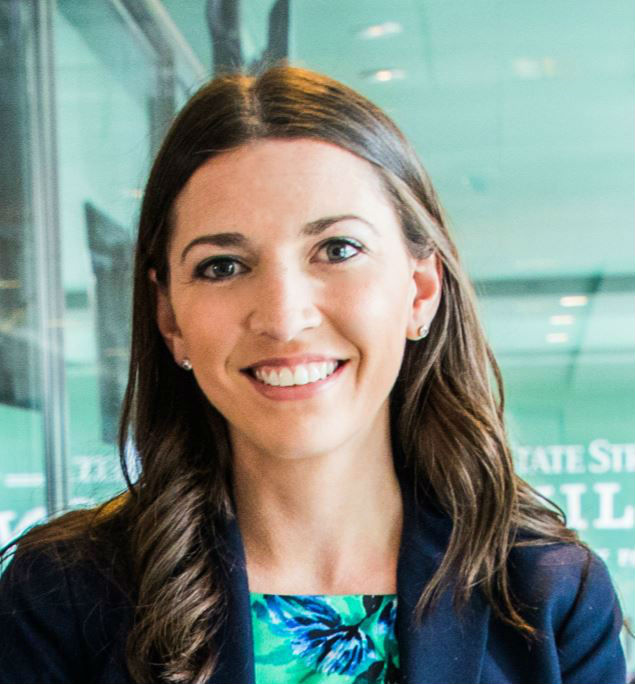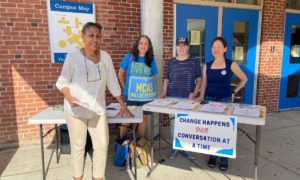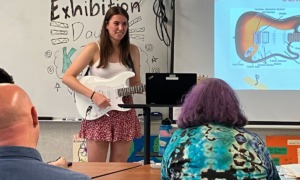Massachusetts is considered a leader in education in the country, with the highest standardized test scores and some of the best public education institutions. However, when it comes to issues regarding equity within our education system, such as the achievement gap, we often fail our young people from low-income backgrounds. We see this most clearly through our dropout rates in schools, particularly in communities of color and in regions with concentrated areas of poverty.
Although it would seem the dropout rate for students in Massachusetts, and even across the nation, has decreased significantly over the last few years, the opportunity gap has been pervasive across youth of color, particularly among black and Latino students. In 2015, the opportunity gap in Massachusetts was the third highest in the nation. In that same school year, more than 5,500 students in Massachusetts left school before earning a diploma. In the 2015-16 school year, the state average graduation rate was 87.3 percent, but 77.5 percent for black and African-American youth and 72.2 percent for Latinos respectively.

Chelsea Aquino
At Mass Mentoring Partnership (MMP), we see positive youth-adult relationships as a way to level the playing field. For children to develop the skills they need to be successful and become engaged community members, they need adults in their lives to help them explore, learn and evolve.
However, too many young people lack the access to relationships because of the color of their skin, where their parents are from or the streets they live on. Our advocacy agenda and public awareness campaigns have been deeply rooted in the creation of social-emotional support (SES) systems and developmental relationships as a way to overcome barriers to success, giving young people the tools and personal connections they need to thrive and reach their full potential.
Graduation Coaches
Studies reveal that students who lack a high school diploma are less likely to have a job and those who do earn less, on average, than high school graduates. They are also less likely to have health insurance and are more likely to depend on Medicaid or Medicare for their coverage, more likely to depend on public assistance and are more likely to be incarcerated.
We firmly believe graduation coaches serving as mentors are the systemic response to dropout prevention and re-engagement efforts, utilizing developmental relationships to keep students engaged both in and out of the classroom. These relationships add an additional layer of support to help overcome challenges that occur in their home and their communities.
We see graduation coaches as the solution to the opportunity gap and high dropout rates among young people in struggling school systems, as a constant presence within the school building that can be a mentor providing wraparound supports. Only 56 percent of students who have dropped out report that there was a school staff person they could go to about school problems.
Sure, a graduation coach sounds just like a guidance counselor. However, the counselor: student ratio is disproportionately large, school counselors across the country manage caseloads of about 482 students each, and teachers already have roles beyond their job descriptions.
In a peer-to-peer-led focus group MMP hosted last year, a student in Boston commented:
“… guidance counselors are only focused on students who are going to college, our teachers only care about school work, and the social workers are helping kids who are in crisis, so I’m lost in the mix.”
Systemic Change Through Legislation
Legislation existed before MMP’s involvement with this policy effort, titled “An Act Relative to Dropout Prevention and Recovery.” It called for a graduation coach in schools with high dropout rates to add additional academic support such as tutoring. In MMP’s legislative advocacy, we called out that there are other complex challenges young people face that require social and emotional supports so they can overcome trauma and conflicts in their home life and their communities.
Language was changed in the bill as a result to have graduation coaches serve as a social-emotional, mentoring support. As youth advocates, we understand some of our young people can experience trauma daily, and even feel threatened in the schools that are meant to be safe places. Oftentimes, our educators and school administrators are not equipped to address or identify these issues, or they bring inherent biases to situations that are then difficult to diffuse. Having developmental relationships embedded in the school framework can build more positive experiences and improve overall school climate.
In this bill, a graduation coach can be an anchor support that helps young people navigate their lives both in and out of school, and help to build a web of relationships with other adults who can provide additional assistance and access to resources. They can serve as a liaison between school administrators and the young person, make referrals to community-based organizations and mentoring programs or social services, help a student find discounted transportation options to help them get to school, and most importantly, they can be someone who listens or asks them “How are you doing?” In essence, they’re a caring adult — a constant presence in a young person’s life and a relationship that provides wraparound support.
The policy is meant to allow schools to implement this grad coach initiative in a way that works best for their districts and depending on the resources they have, or lack. A graduation coach can be a salaried employee, like a teacher or a sports coach, who receives training and a stipend to serve in this capacity. Or districts that can afford it can hire graduation coaches with specific qualifications, such as having a master’s in social work or a professional background in youth development. What is explicit in the bill is that schools can opt to bring in community-based organizations and mentoring programs to come in and have mentors serving in this capacity.
Our advocacy, in addition to calling for these graduation coach supports for students who are chronically absent, would also establish professional development opportunities and administrative technical support services. Adults serving in this role, or anyone on the district’s payroll, could be trained in trauma-informed practice, cultural responsiveness, effective strategies for parent and guardian engagement, and creating and sustaining healthy youth-adult relationships within in a school setting. Currently, Mass Mentoring Partnership is working to provide these trainings on a districtwide or schoolwide level in targeted communities.
Where It’s Happening
MMP’s direct advocacy isn’t necessarily for a particular model, it’s for the idea that there needs to be mentoring relationships (in whatever form) embedded in schools to provide wraparound supports and keep young people engaged in school. This is happening through different pilot programs across the state and can all be characterized as a social-emotional support.
A few high schools in Boston have launched a program to recruit mentors of color who can offer supportive, mentoring relationships for chronically absent students. Based off the national My Brother’s Keeper movement, the program is called Success Mentors.
One of our program partners, Boston Partners in Education, works to bring an in-school volunteer support mentoring model with the goals of college and career readiness in mind. In 2016, Salem and Lynn public schools sought to hire AmeriCorps members to serve as graduation coaches with a focus on supporting English language learners. The AmeriCorps program City Year can also be considered an example of a holistic, wraparound support for students in underserved communities.
With the lack of funding for education statewide, the opportunity gap remains one of our greatest challenges, and we are unable to ensure that young people have the support of critical mentoring relationships in schools. This disadvantage between neighborhoods and districts is evident through the underfunding of our schools stemming from an outdated budget formula that leaves schools in communities of color stripped of resources.
Social-emotional supports and mentoring relationships aren’t enhanced, encouraged or equipped without adequate funding for professional development and the recruitment, screening and training of mentors. With the passage of this legislation, eligible school districts would apply for state grants to build graduation coach programs. MMP also advocates for the Mentoring Matching Grants line item in the Massachusetts state budget to fund formal mentoring programs, a proportion of them serving opportunity youth in school-based programs.
Any successful adult can attribute their success to a supportive adult in their youth. Our young people deserve to have access to youth-adult relationships to help them succeed in academics, their communities and in life. If we fail to invest in our young people and our schools, in both financial and social capital, we will continue to see widespread inequality.
Chelsea Aquino joined Mass Mentoring Partnership as the manager of government relations and public policy in 2016, where she develops and manages MMP’s policy efforts and advocacy campaigns, maintains relationships with state and local agencies and constructs approaches for driving public financial resources to the field.
































